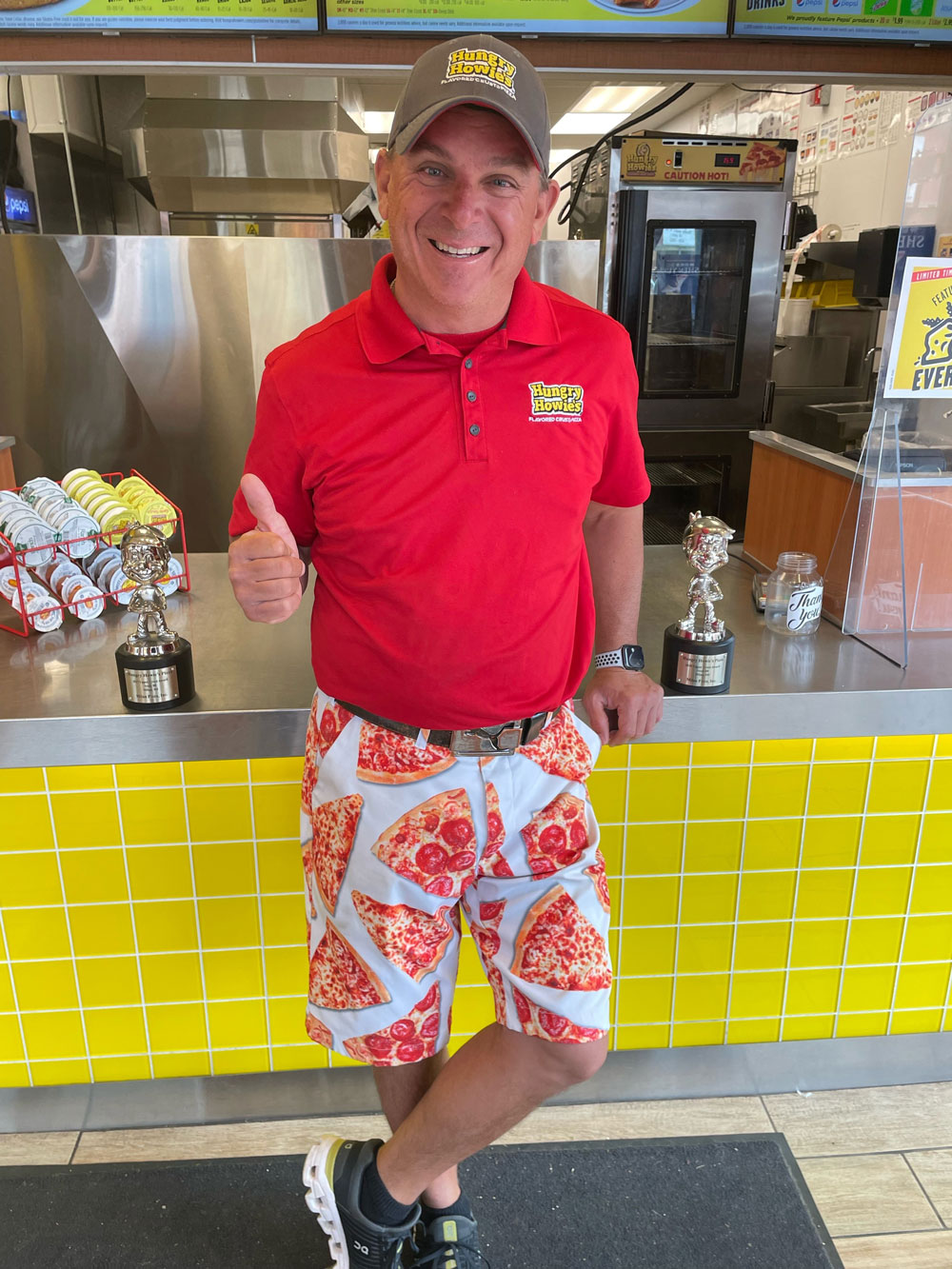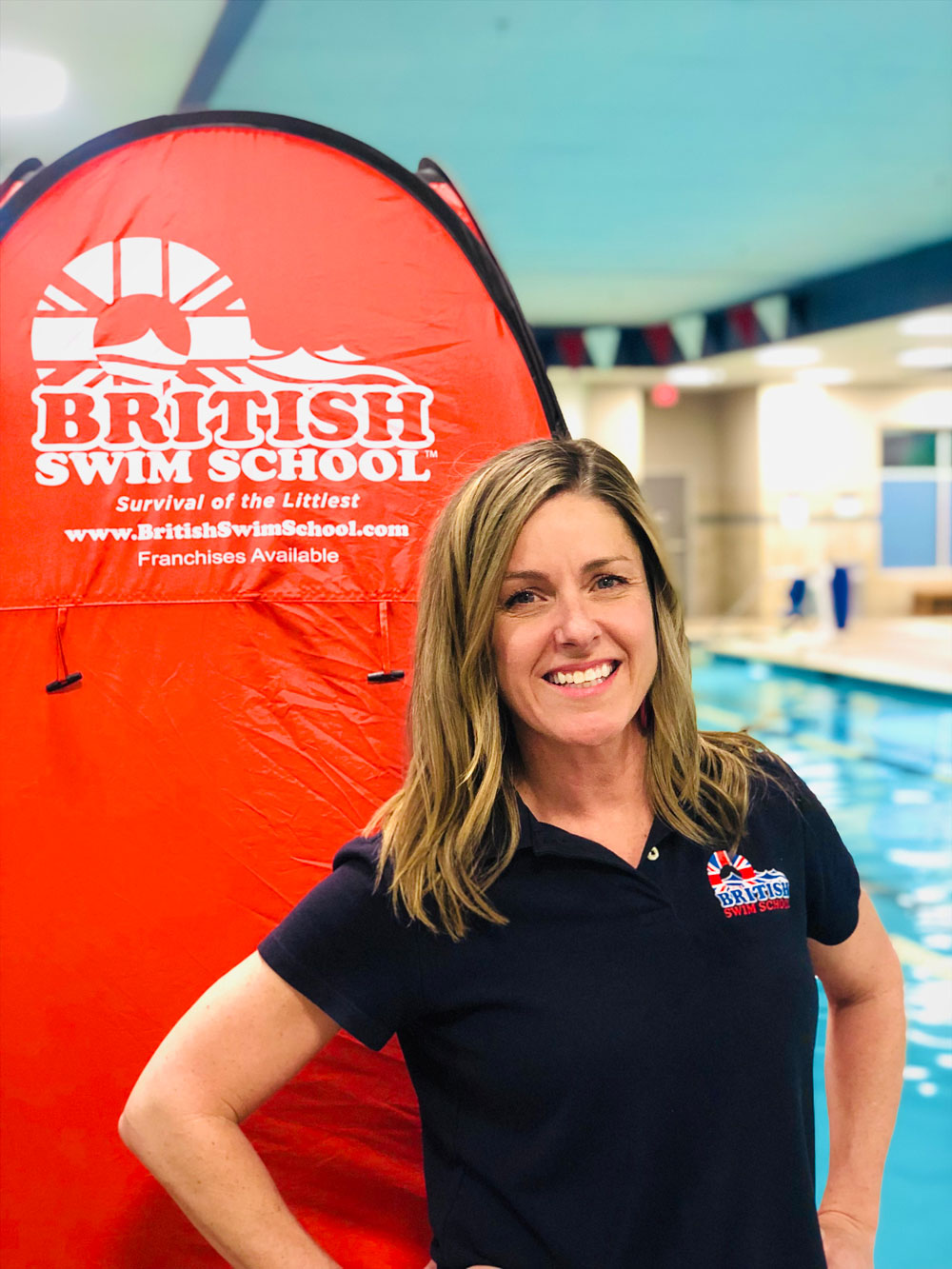
No one has to convince Patrick Shannon, a Hungry Howie’s Pizza multi-unit franchisee, that local marketing is worth his time and money. Since opening his first store in 1996 with wife and business partner Carole, Shannon has seen local marketing prove its value time and again. That’s not to say that he ignores the national marketing materials or campaigns from Hungry Howie’s and is quick to take advantage of what the franchisor has to offer.
Rob Elliott, Hungry Howie’s executive vice president of marketing, says the brand, with 533 stores in 20 states, is keenly aware of the power of local. And although print once was the most direct way to advertise, today the method is almost entirely digital, making it easier to customize a marketing plan for each store, he says. Modern data science makes it possible to know more than ever about customers, another enabling element for localizing marketing campaigns. “We have robust data,” says Elliott, making marketing much more personal than it ever was with a direct mail flyer or generic display ad.
However, science only goes so far. There also is the art of marketing to all the different kinds of customers franchisees know best through direct contact with them and their frontline employees. The six communities that are home to Shannon’s locations are all located in small towns in Michigan’s Ann Arbor area, with populations ranging from around 4,300 to 25,000—numbers that are ideal for local marketing efforts. Throw in Shannon’s long-term knowledge of the area and it’s a perfect setup for making local logical.
“It’s about getting to know the customers on a daily basis, and that’s the greatest thing,” he says. “In a smaller town, you may have fewer people, but you see them more often.” He might run into one of his customers as he’s pumping gas. Or he may be interviewing a high-school student for her first job, who tells him that she had her first pizza at one of his restaurants.
For Shannon, understanding his customers and supporting their communities are essential ingredients in how he does business. That’s one reason his Hungry Howie’s stores regularly host fundraisers for schools and community events. “It might cost me money today, but next month people will remember and say, ‘Hey, we want to go to Hungry Howie’s!’” Shannon also urges his employees to work at getting to know each customer so that when they come in they’re known by name. This is a culture supported by the brand’s marketing team, says Elliott. “It’s one of our core values: Treat everybody like family.”

Social media matters
Of course, social media is key for local marketing today, but for Shannon it’s not only about pushing out information about the brand and his stores. In keeping with his focus on community building, Shannon follows all his locations’ surrounding schools on Twitter, “so I can see what’s happening,” he says. Then he retweets school tweets, as well as Hungry Howie’s national tweets.
In addition, Shannon’s wife Carole manages a Facebook page for the couple’s stores. Hungry Howie’s national also posts on Instagram, but also customizes digital marketing plans for every store in the country. Some national fundraisers also are very popular locally, says Elliott, such as the brand’s pink pizza boxes to raise funds to support the campaign against breast cancer.
Local recognition and reputation, Shannon has learned, are just as powerful, if not more so, than social media. He recently opened a new location not far from his others and did nothing more than standard social media posts. “The first week we were open blew our doors off,” he says. “It turns out people from that town were already customers of ours in our other stores in other towns.”
That approach could seem less aggressive than it might be, but it works well for Shannon and fits neatly with the brand’s ideals of community involvement. “We were getting ready to celebrate our family’s 25th anniversary as Hungry Howie’s franchise owners,” he says. “Instead of advertising, ‘Come in and get pizza,’ we put up a billboard, with the help of corporate, that read, ‘Thank you, Milan, for 25 years.’” (Milan is the town where Shannon’s first store is situated.) That wasn’t all. Shannon decided to offer 25¢ pizza and donate the difference between that price and the actual price to local charities. “It wasn’t about making money,” he says. “A little dough goes a long way to keep our customers happy.”

Sink or swim
Shannon has the advantage of deep roots in his area, along with a locally popular product backed by a franchise brand that’s been around since 1973. Not so for Nikki Taylor, who moved from Missouri, where she grew up, to Boulder, Colorado, just a few years ago.
Taylor, whose professional background is in marketing and sales, signed with British Swim School, a franchise without much name recognition in her area. The brand has been around since 1981 and has 215 locations across the U.S. and Canada, but hers would be its first location in Colorado. This made it “as hard as it could possibly be” to make marketing headway, she says. “Nobody knew us.”
Now, in her fifth year and with a fifth location recently opened, she has purchased a second territory, expanding southward toward Denver.
Taylor’s road to success has not been easy. As a beginner franchisee, she’s had to endure the pandemic, but has called upon all her professional marketing skills to survive, starting with understanding her local customers. First, she says, the parents of the 2- to 6-year-olds who are her primary students don’t like to drive more than about 10 minutes. That means she could target her social media on Facebook, for instance, to capture that geographic audience. She could also use pay-per-click Google Ads in combination with a website strong in SEO, she says, “to find people looking for us.”
Taylor says her spend on marketing was high at first, but still within the 3% to 5% range, with the majority of its cost on Google and social media. “We’ve really targeted the area within a 10-mile range, and the word’s finally out now,” she says. Today her enrollment stands at 800 children.
She also took time to be part of community events, especially those with an area for kids. For example, “We would do a little fish game and talk to parents,” she says. Some of those events might draw as many as 10,000 visitors. She also showed up at hotels and 24-hour fitness center events. All of that aligned with why she chose the brand she did. “I wanted to do something that would allow me to give back to the community,” she says. “To provide life skills to a community is huge.”
The franchisor, she says, supplies her with good marketing resources and support, managing her website and providing email templates and material to post on social media sites, as well as materials for special events such as water safety months.
While Taylor’s learning curve has been intense, she has been supported by other British Swim School owners sharing their knowledge and experience. Coupons, for example, don’t work well in the swim school world. Having agreements with big hotels to hold classes gives her schools greater visibility. Hiring a reputation management company boosted that visibility, too, as Taylor learned how powerful word of mouth is as a marketing tool. Her community involvement also includes scholarships for children in need of financial assistance for swim lessons. Called Hope Floats, the lessons are a corporate program that been well promoted by the franchisor.
Survival school lessons are another marketing tool Taylor uses to build business, as well as support the community. “Five times a year,” she says, “we host a survival week, teaching kids how to get in and out of the water safely. You don’t fall in the water with your swimsuit on.”
More subtle, but undoubtedly appreciated by her students, is the marketing value of British Swim School’s teaching philosophy. “Some schools are sink or swim,” says Taylor. “We are a gentle method because it’s a way of helping more kids to the life skill of swimming.”
Hire an expert
Sometimes it makes sense to seek help for local marketing, as expertise can be well worth the expense. California Fish Grill, for example, recently hired Mobivity to assist with the franchise’s Fin Crowd Text Club. People who text a certain keyword will receive regular menu and location updates—and a free fish taco when they sign up. Mobivity’s SmartMessage allows the brand to customize text messages for each of its nearly 50 locations in California, Arizona, and Nevada.
“With consumers so connected to their mobile devices, text messaging was the next logical media channel for us to develop stronger connections with our customers,” says Joanna Kan, the brand’s director of marketing. “We selected Mobivity for its personalization capabilities so we can connect with guests through regionalized messaging and send promotional updates specific to each location.”
Jersey Mike’s Subs, with more than 2,000 locations nationwide, is consolidating its local marketing efforts to build a mobile app and online presence as more of its customers opt for pickup or delivery. In March, the brand announced it had named SOCi as its global platform of record for localized marketing to help simplify and streamline its localized marketing strategy, including local listings, social and reputation management, and social advertising across platforms like Facebook, Instagram, Google Business Profile, and Yelp.
“We’re passionate about providing a great customer experience and giving back to the communities where we work and live,” says Rich Hope, chief marketing officer of Jersey Mike’s. “This partnership with SOCi will bolster our local presence, providing our franchise owners with critical first-party data and leading reputation management capabilities to design marketing strategies that help them go ‘A Sub Above’ every single day.”
Hungry Howie’s Local Marketing Tips
- Class field trips at the end of the school year
- Pizza donation days where a percentage of sales goes back to local schools
- Involvement in all local school, fire department, and police events
- A summer library program for kids
- Fundraising events with chambers of commerce, wine walks, beer fests, fireworks, and fair weekends
- Sponsoring community sports teams
- Teaming with nonprofits in each store’s local trading area to donate a portion of sales on a particular day
- Pizza-making tours with local students who come in and make their own pizzas
- Achievement awards certificates for students
- Business-to-business marketing
- Becoming a member of the local Chamber of Commerce
Two More Local Marketing Ideas
Finding ways to localize marketing is not difficult. Ways to engage a community with your brand are abundant. Here are two examples.
- Bee Vines opened her first Kolache Factory location 3 years ago in Missouri City, Texas. This June, she opened the doors to her second location, also in Missouri City, with a robust list of first-day offers designed to develop a strong connection between customers and her new location. These include a free kolache (a Czech pastry) every day for a year to the first 25 dine-in customers. The city’s mayor and six of its council members attended the ribbon-cutting.
- Big O Tires began a partnership last year with DonorsChoose that shows what can be done to localize a program with national reach. DonorsChoose is a nonprofit charity that enables people to support the classroom resources needed by public school teachers and students. To date, Big O, with more than 460 stores in 25 states, has donated more than $63,000 to DonorsChoose to fund 209 schools.